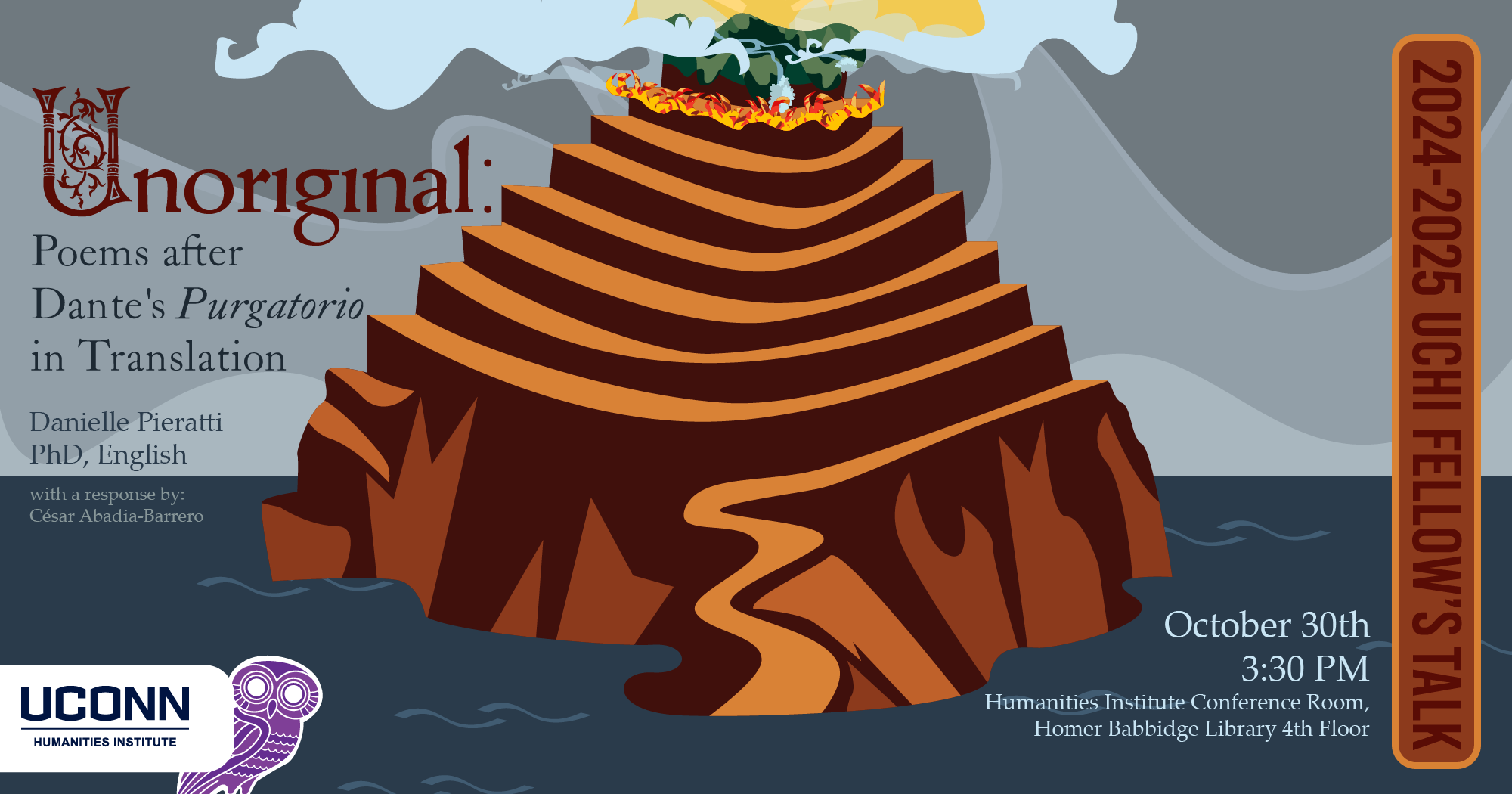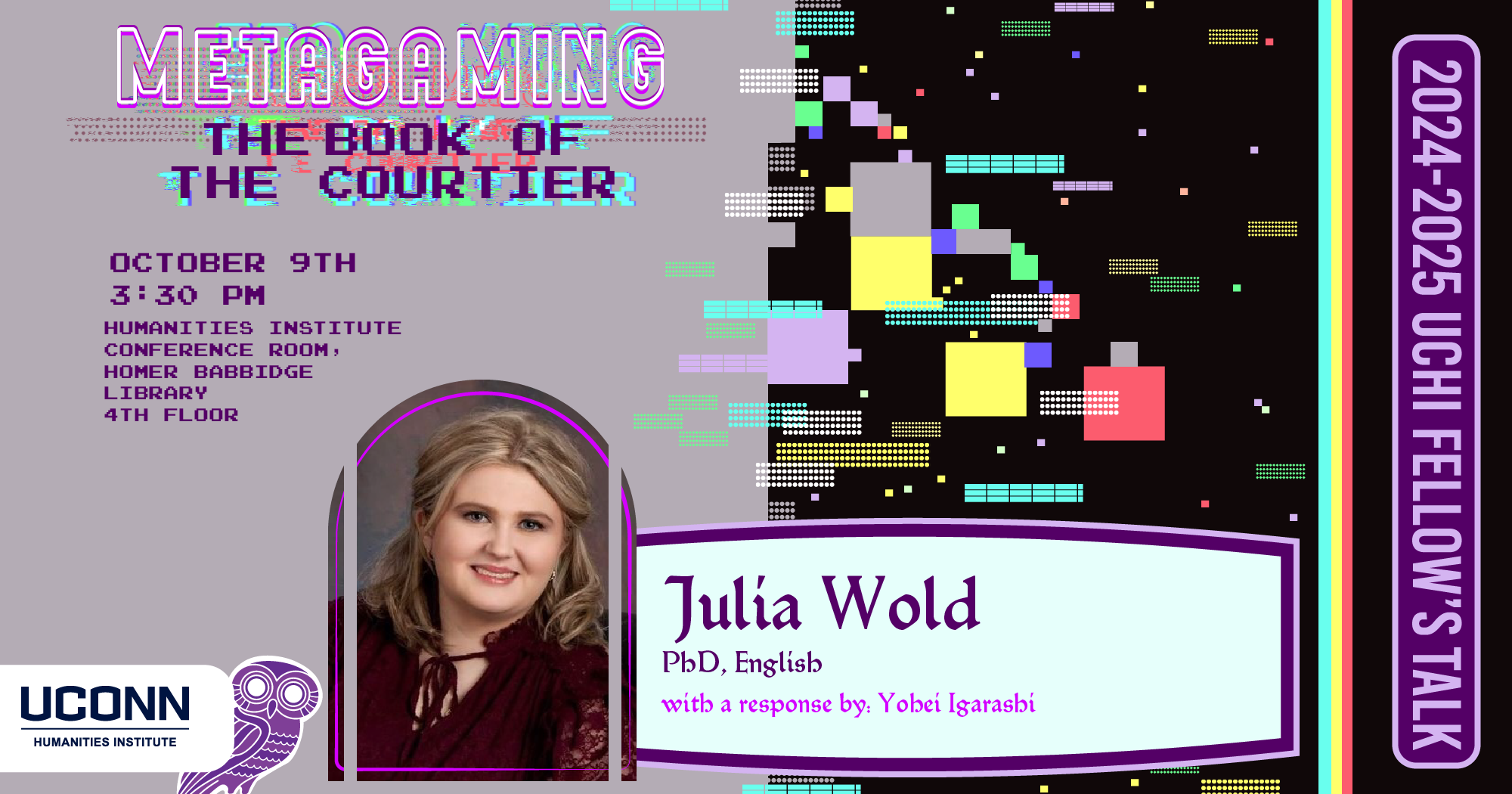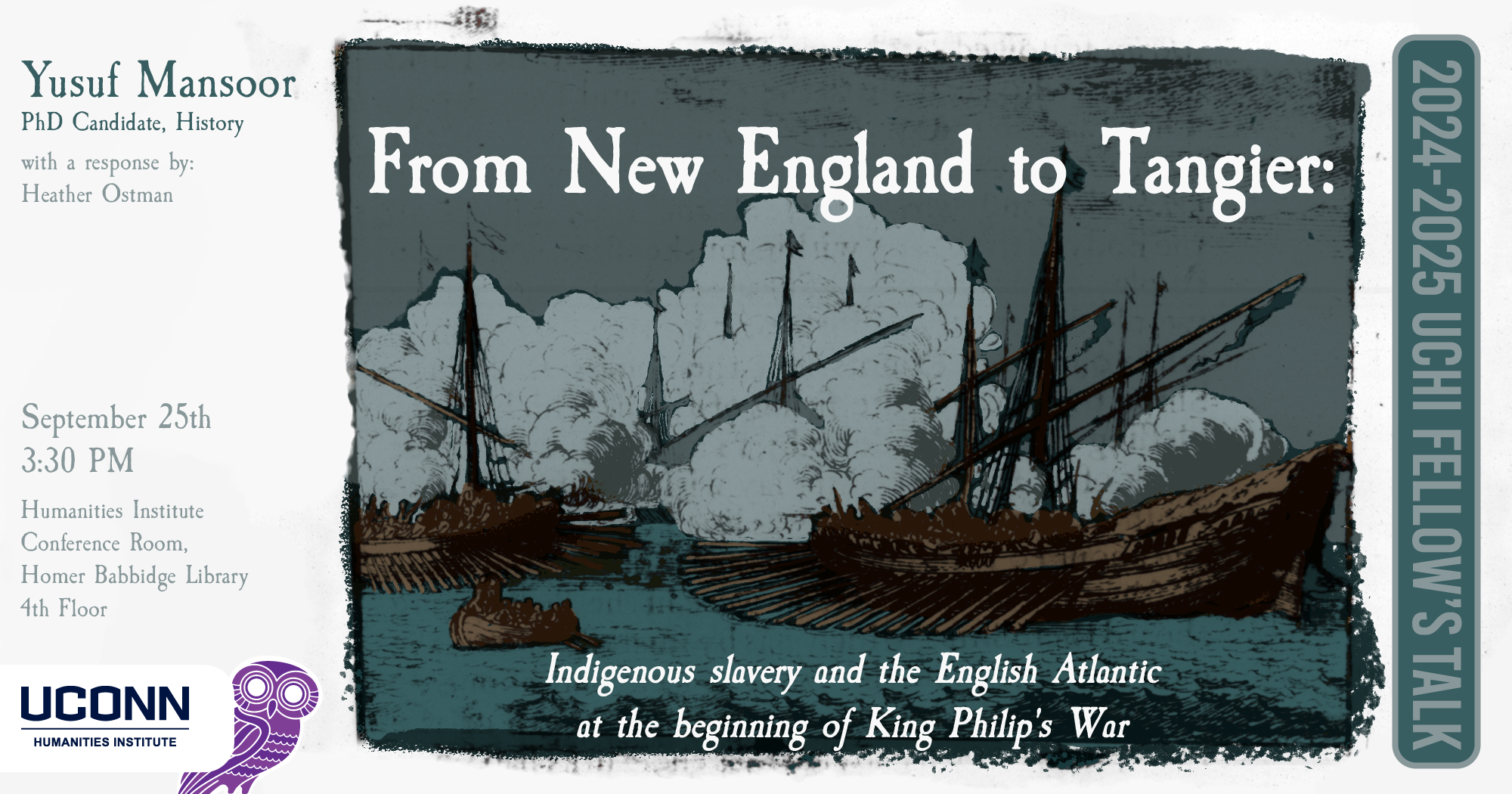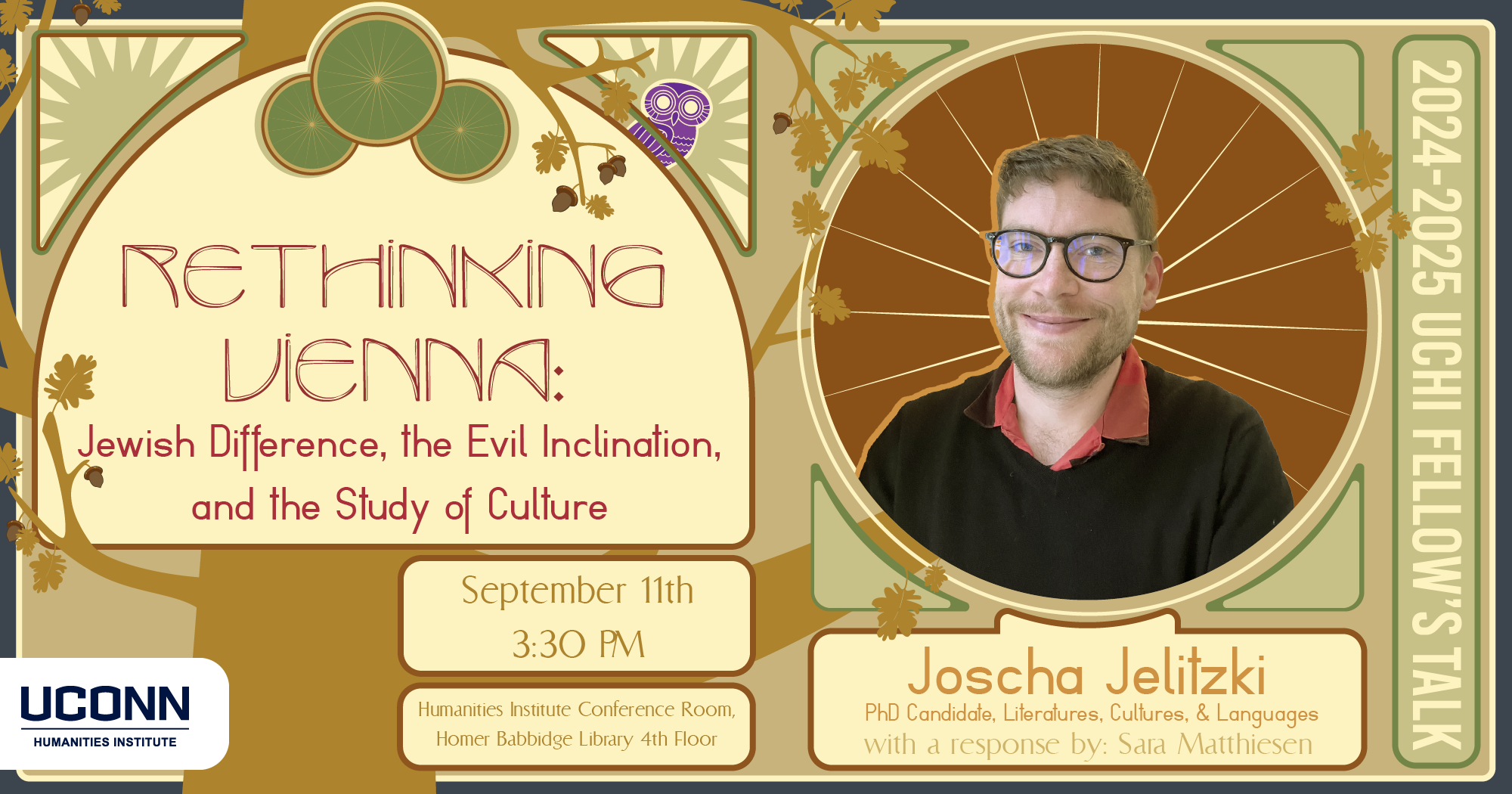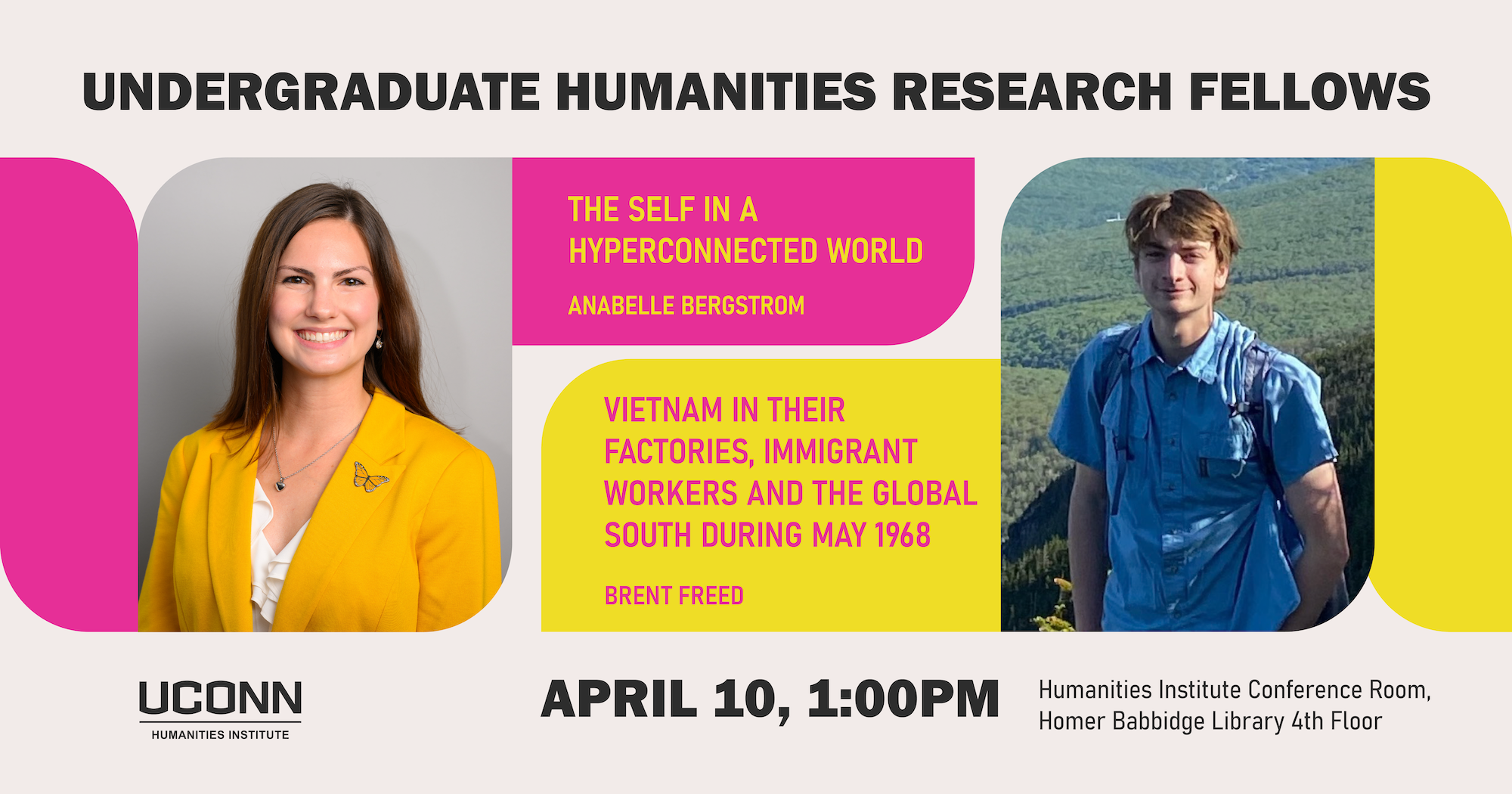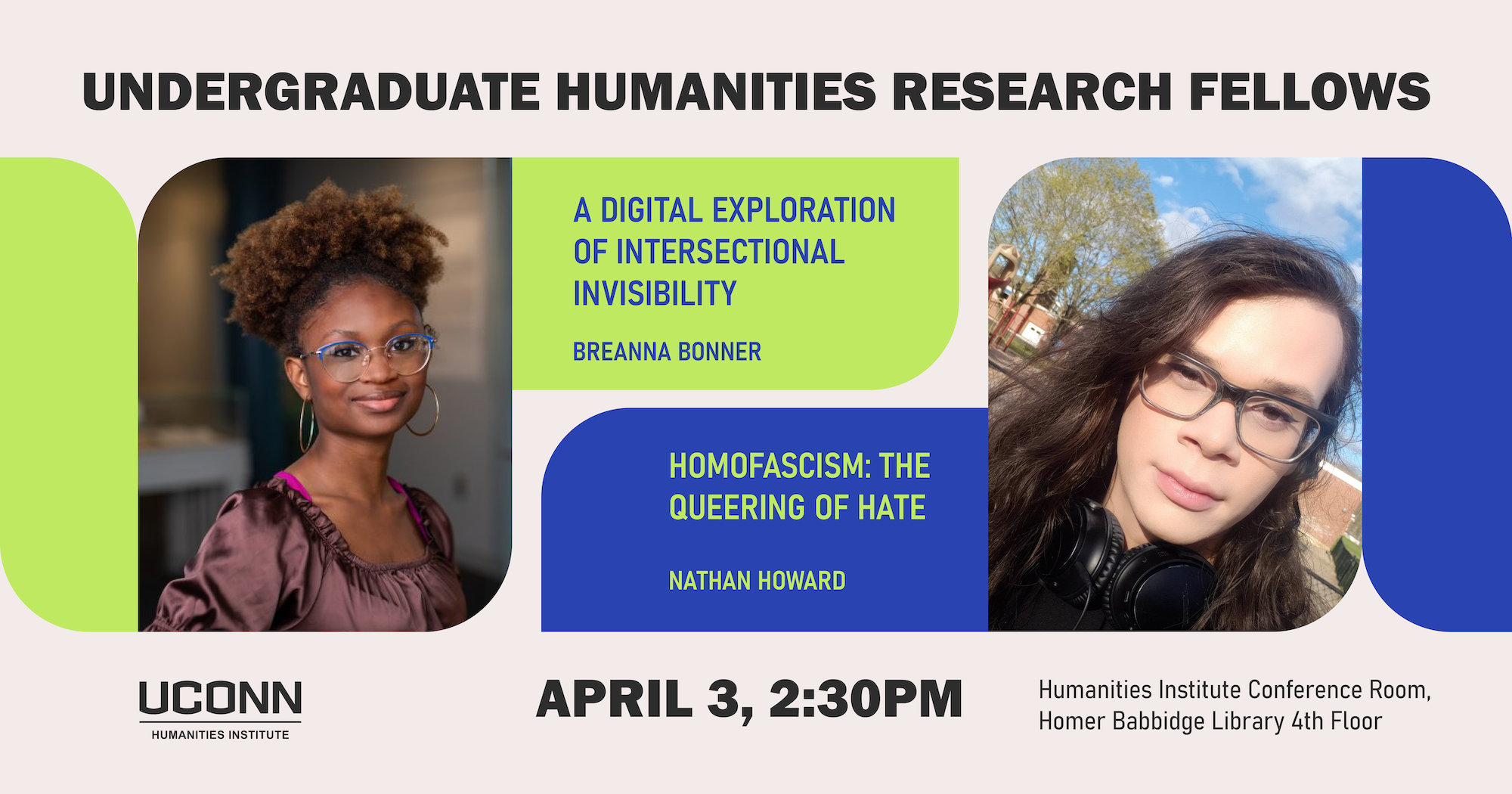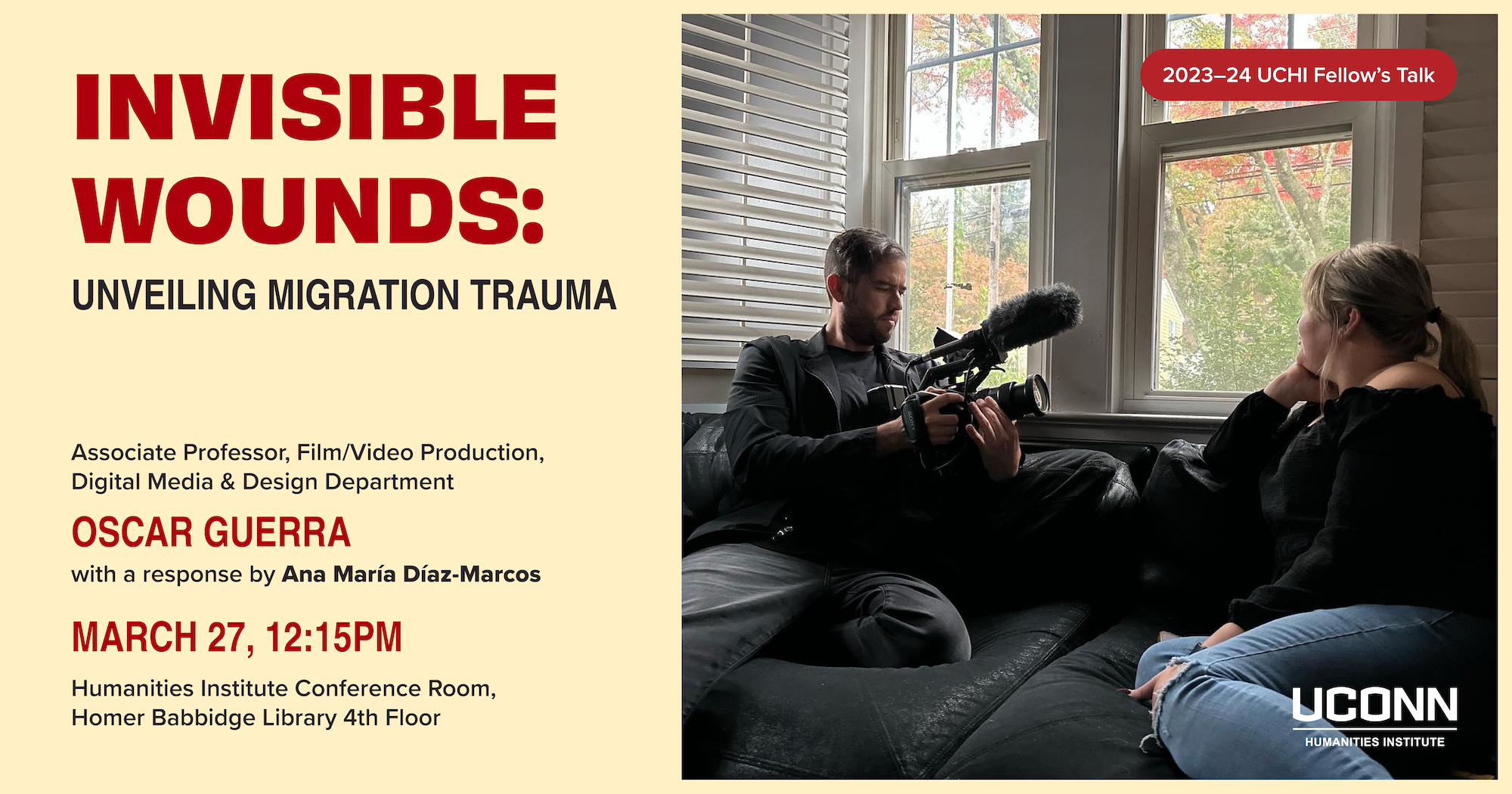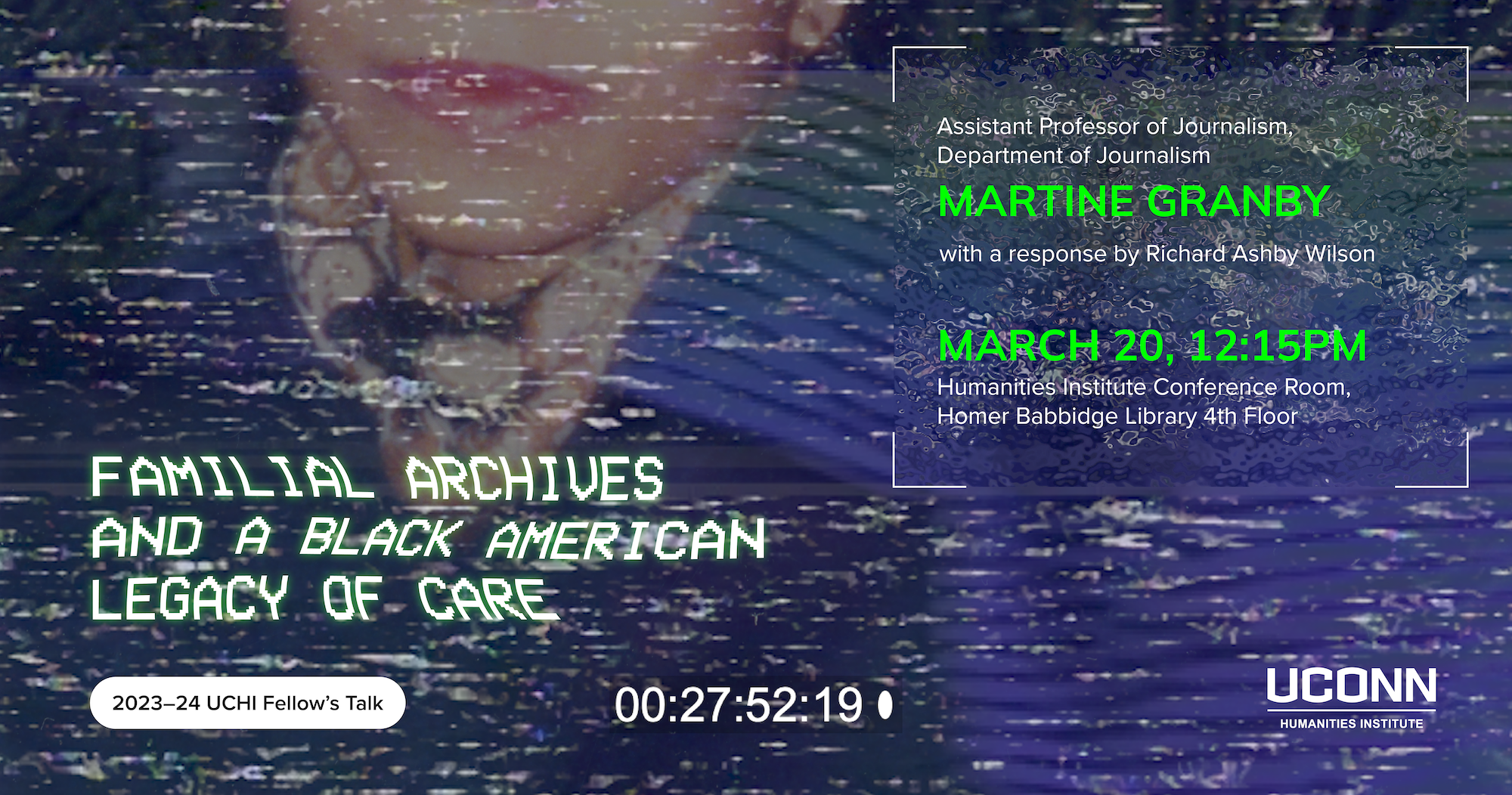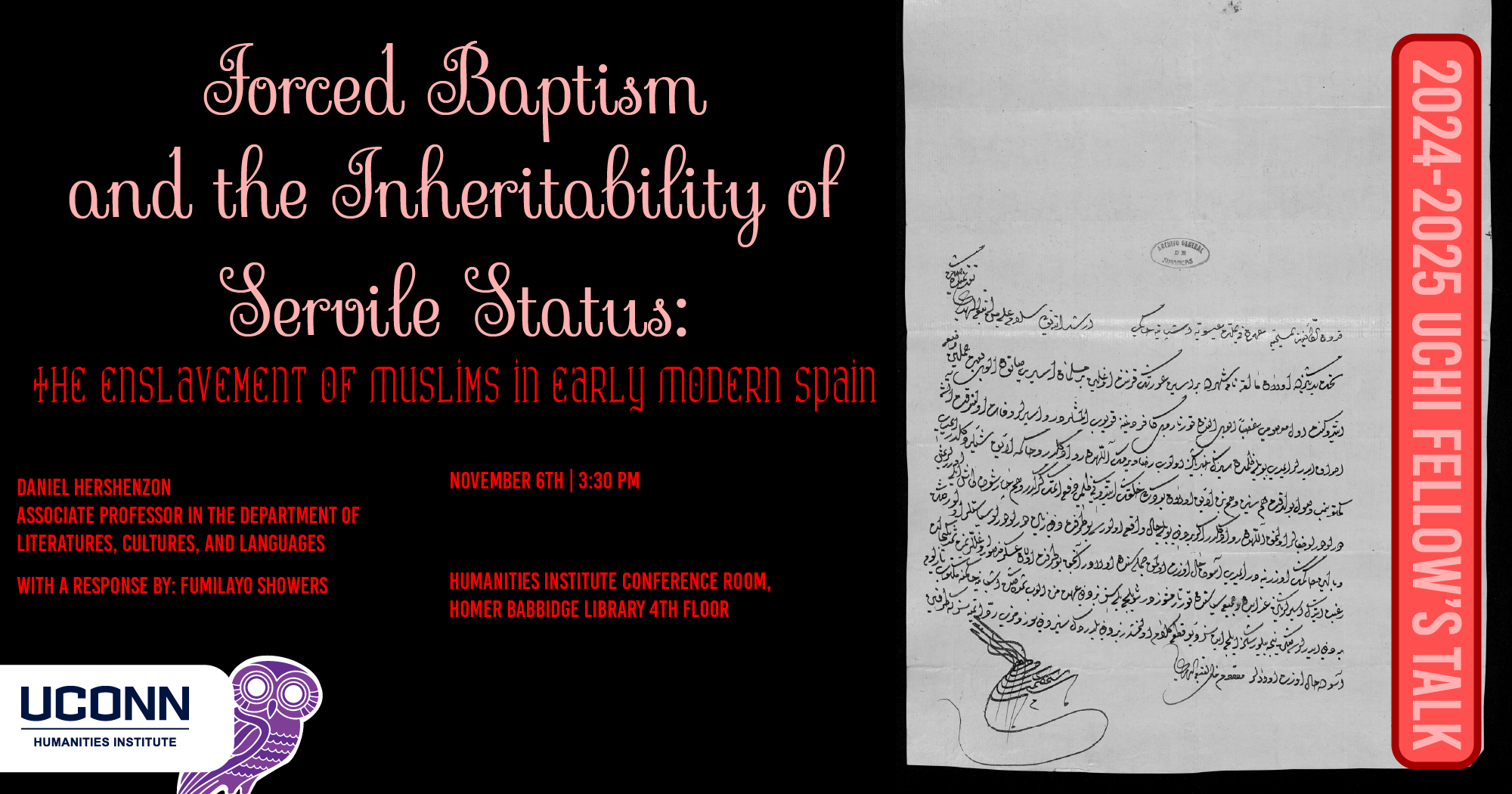
Forced Baptism and the Inheritability of Servile Status: The Enslavement of Muslims in Early Modern Spain
Daniel Hershenzon (Associate Professor, LCL, UConn)
with a response by Fumilayo Showers (Sociology and Africana Studies, UConn)
Wednesday November 6, 2024, 3:30pm, Humanities Institute Conference Room (HBL 4-209)
The event will also be livestreamed with automated captioning.
Register to attend virtually
This talk focuses on a barely perceptible local custom practiced by enslaved and enslavers in the port city of Malaga (Spain) during much of the 17th century—the right pregnant cortada slaves had to free their child in utero, and in so doing to free them of their enslavers’ dominium. Hershenzon argues that the practice, alongside labor and residence, was one of the foundations of the local enslavement regime. In this system, enslaved Maghrebis negotiated a cortado (literally ‘cut’) agreement with their enslavers as part of which they were allowed to labor and reside outside their enslavers’ household in return for a daily or weekly payments until they paid the ransom fee upon which the parties agreed. Ransom in utero entailed protection from forced conversion, breaking the chain of status inheritability, that slavery lasted one generation, no more, and that these children ransomed in utero were allowed to return to the Maghrib, right which converted Muslims did not possess.
Daniel Hershenzon is an associate professor in the Department of Literatures, Cultures, and Languages at the University of Connecticut. His awards-winning book, The Captive Sea: Slavery, Commerce, and Communication in Early Modern Spain and the Mediterranean (University of Pennsylvania Press, 2018), explores the 17th century entangled histories of Spain, Morocco, and Ottoman Algiers. Hershenzon has published articles in Past and Present, Annales-HSS, Journal of Early Modern History, African Economic History, History Compass, Philological Encounters, and in edited volumes. His research has been supported by the Princeton Institute for Advanced Studies, the ACLS, NEH, and other grant foundations. While at UCHI, he will work on “The Maghrib in Spain: Enslavement, Citizenship, and Belonging in the Early Modern Spanish Mediterranean.” Revising the dominant historiographic narratives about early modern Spain, “The Maghrib in Spain” offers the first comprehensive account of North Africans in post-expulsion Spain.
Fumilayo Showers is an assistant professor with a joint appointment in the Sociology department, where she directs the Health Professions, Health Care, and Social Inequality Lab, and the Africana Studies Institute. Her research centers on race, gender, and US immigration; the social organization of health and long-term care; health professions; care work; and immigrant workers. Her book, Migrants Who Care: West Africans Working and Building Lives in US Health Care (Rutgers University Press, 2023) is the first book to document the experiences of recent West African immigrants in a range of health care occupations in the US (nursing, disability support, elderly care). Her current research projects focus on tracing changes to US health care systems and the experiences of frontline health care workers as a result of the COVID-19 pandemic; the study and practice of biomedicine in non-western contexts; and the global migration of health professionals.
Access note
If you require accommodation to attend this event, please contact us at uchi@uconn.edu or by phone (860) 486-9057. We can request ASL interpretation, computer-assisted real time transcription, and other accommodations offered by the Center for Students with Disabilities.
